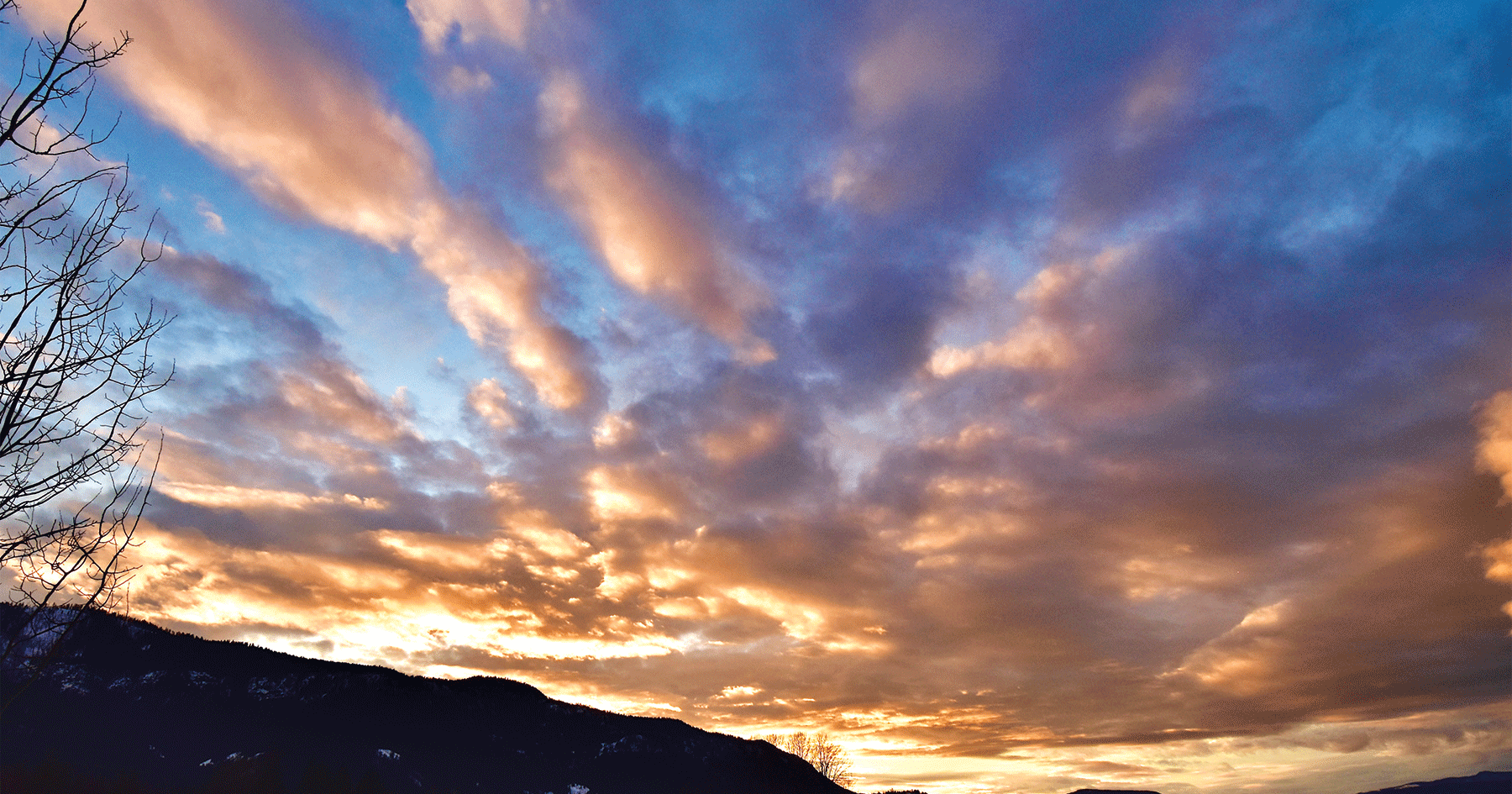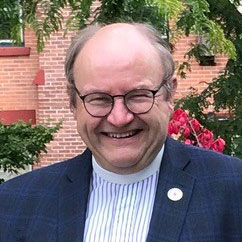Servant’s Heart: From the Desk of a Deacon
The Diocese of Kootenay includes some of the most beautiful and nourishing natural places in all of Canada, and indeed, the world. The Christian mystic Hildegard of Bingen spoke of “viriditas” (the greening force of the divine in nature). Those of us who live in the mountains and valleys of Kootenay know of the liminal space all around us.
Yet, in 2021, we experienced one crisis after another – record-breaking heat and a drought, terrible forest fires, devastating land slides and flooding. Anthropocene, the human-induced era of catastrophic weather events and climate disaster, is a reality. Especially for those who were forced to flee their homes due to fires and floods.
At the Sorrento Centre, we were grateful to be of practical assistance over the past year to many disaster victims, offering generous hospitality in the form of good food, comfortable housing and a warm welcome. Our Centre continues to provide healthy and nutritious meals daily for hungry people in our region as we have done since the start of the pandemic.
The Sorrento Centre aspires to be a living example of diaconal ministry. In our Anglican Church, the Deacon serves at the intersection of Church and community – interpreting the cares and concerns of the world to the Church, offering practical service and through servant leadership supporting the people of our Church in living out our collective baptismal commitments.
When it comes to Mother Nature, all baptized Anglicans commit to “strive to safeguard the integrity of God’s creation and respect, sustain, and renew the life of the earth.” Part of that includes disaster relief – practical support for people and the rest of creation in recovering from crises. Another big part of that is reconciliation – seeking a right relationship between humans and the natural world.
In Genesis Chapter 9, we read of the great covenant established by God after the flood. The covenant is not simply between God and humans but includes all of creation. Five times in eight relatively short verses, God includes all the natural world in the new covenant.
There is a danger in viewing this covenantal relationship as a hierarchy with God on top, humans next in line, and then the rest of creation in cascading order below. Elevating humanity to a position of dominance feeds a further notion that humans are entitled to extract and consume without limit the abundance of the natural world for personal or collective gain.
The poet and theologian Wendell Berry warns against this: “The idea that we live in something called the ‘environment’ is utterly preposterous. The world that environs us, that is around us, is also within us. We are made of it; we eat, drink, and breathe it; it is bone of our bone and flesh of our flesh.”
Anger, fear and blame drive a good deal of advocacy for climate justice. All of these are powerful and understandable, but they reduce the divine-infused natural world to something that we argue over, instead of an expression of the divine that we should love and embrace and live in right relationship with.
In the 1980s, the Japanese practice of shinrin-yuko, translated into English as “forest bathing,” began to take shape. At the Sorrento Centre, throughout the year, we offer a range of spiritual and natural practices from meditation to Wild Church that seek to strengthen the loving relationship with the divine and the natural world.
Restoring a right relationship with Mother Earth grows from a kinship with the rest of creation, a deep and abiding love that is a reflection of the divine love that is woven into the very fabric of creation. That’s why, throughout 2022, we’re going to be offering plenty of opportunities for people to fall back in love with Mother Nature.
You can find plenty of information about this on our website:
https://www.sorrentocentre.ca/ pages/falling-back-in-love-with-mother-nature/
For many years, we at the Sorrento Centre have sought to live as deeply as possible into our mission to be a holy place of transformation for learning, healing and belonging. Now, more than ever, we want to fall back in love with Mother Nature.


